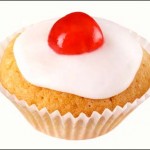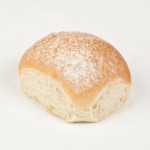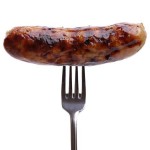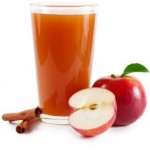Is this breakfast, lunch, tea, supper or dinner? Could be any of them …
Staying on the food theme, let’s address the subject of what you call each of your meals and what this says about you (at least in England until fairly recently). Here, when someone invites you to “tea”, this can mean a couple of different things, depending largely on your host’s geographical location or social class: they could be inviting you for a cup of tea and a biscuit in the mid-afternoon, or they could be asking you to join them for their evening meal. It seems to be a peculiarly British phenomenon that you can tell a lot about someone’s social class — or where they come from — simply by what they call their meals (and also by what they call some of the rooms in their houses — but that’s for a separate discussion). Beware: this is something of a linguistic minefield …
Here’s a journey through a day’s repasts in England (at least as I understand them).
Morning: Breakfast: a morning meal, from break + fast, as in “breaking the nightly fast”. This is fairly standard throughout the UK and English-speaking countries.
Mid-morning: Elevenses: a snack eaten in the morning, usually biscuits or cake (a bit like tea in the afternoon). It’s an old-fashioned term – and is a curious “double plural” of the number eleven, at which time it’s usually taken. According to Merriam-Webster, it dates back to about 1819. Its use now is confined mainly to the elderly or when speaking in jest. Wikipedia reminds us that for elevenses, Winnie-the Pooh preferred honey on bread with condensed milk; Paddington Bear often took elevenses at the antique shop on the Portobello Road; and it’s a meal eaten by Tolkien’s Hobbits between second breakfast and luncheon.
Middle of the day: Lunch/luncheon or dinner. This is where social class distinctions begin to creep in. Dinner was historically the main and most formal meal of the day, and from the Middle Ages up until the 18th century it was usually taken at midday. As working men began to travel further away from home, and it became logistically more sensible for them to take a portable, lighter meal in the middle of the day, the main meal of the day shifted to the evening, still called dinner, and the midday meal, now lighter, came to be known as luncheon, or lunch for short. However, in northern England and among the working class, the word dinner is traditionally used for the midday meal even if it’s lighter and taken to or at school or work. Hence the enduring term “school dinner”, and the English “dinner ladies” who supervise schoolchildren while they scoff or throw around their midday meal. Lunch is otherwise now fairly standard for the midday meal — throughout the English-speaking world in fact. But luncheon is reserved for more formal occasions, and is used very rarely (and somewhat pretentiously) by the upper-middle and upper classes to describe their midday repast.
Mid-afternoon: Tea or low tea: a snack — usually consisting of biscuits, a small sandwich, and/or baked goods — and a cup of tea (or coffee), to tide oneself over and provide an energy boost between the midday and evening meals. For a brief social history of the meal known as tea, and to understand the distinction between “low tea” and “high tea”, see an earlier Glossophilia post on the subject. Although “low tea” is still used in some schools and establishments, the term is now virtually obsolete and wouldn’t be understood by most Brits.
Evening: Tea/high tea, supper or dinner. As explained above, dinner historically and traditionally refers to the most substantial and formal meal of the day, which in modern times is typically taken in the evening. However, as also mentioned above, English northerners and midlanders, as well as working-class Brits, still often refer to the midday meal as dinner and then to their evening meal as tea. This word evolves from the original “high tea”: a more substantial evening meal, usually consisting of “meat and two veg” (or a similar combination) put on the table at around 6 pm for the working man of the family to return home to. However, high tea wasn’t a meal of just the working class. The middle classes would sometimes take a form of high tea in the early evening – at five or six o’clock – replacing the later evening dinner, especially if there were evening entertainments planned (much like our modern pre-theater meal) or not enough staff on duty to cook or serve dinner.
Nowadays, supper, which has always described the last meal of the day, has come to replace dinner as the standard middle- or upper-class word for the evening meal, especially when referring to the informal meal eaten at home with family members. Dinner tends to be reserved for more formal occasions, such as when inviting guests for an evening meal (you invite people to dinner), eating out in restaurants (you meet or go out for dinner), or for official or celebratory events and occasions.
Late evening (before bed): Supper refers sometimes — in some parts of the UK and in working- or middle-class usage — to a late-evening snack (similar to afternoon tea in its constitution) that follows the main evening meal and is taken before retiring. I believe it has become a rather old-fashioned name, verging on obsolete, for this particular meal.
Confused? Because this verbal meal-maze has been so studied and picked over by social historians and linguists in recent years, it’s probably been affected by an increased self-consciousness — as well as by social (both upwards and downwards) and geographical mobility — so it’s less indicative of one’s social standing or location than it used to be, and meanwhile England continues to move in the direction of a classless society. But you still might want to be mindful of all this when you receive that tea invitation — especially if it’s from a kindly northern stranger for a 5.30pm start time …




















































